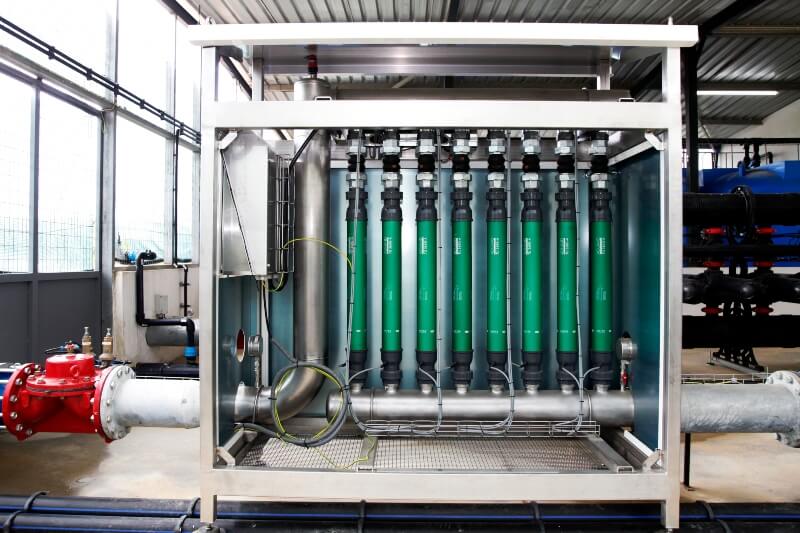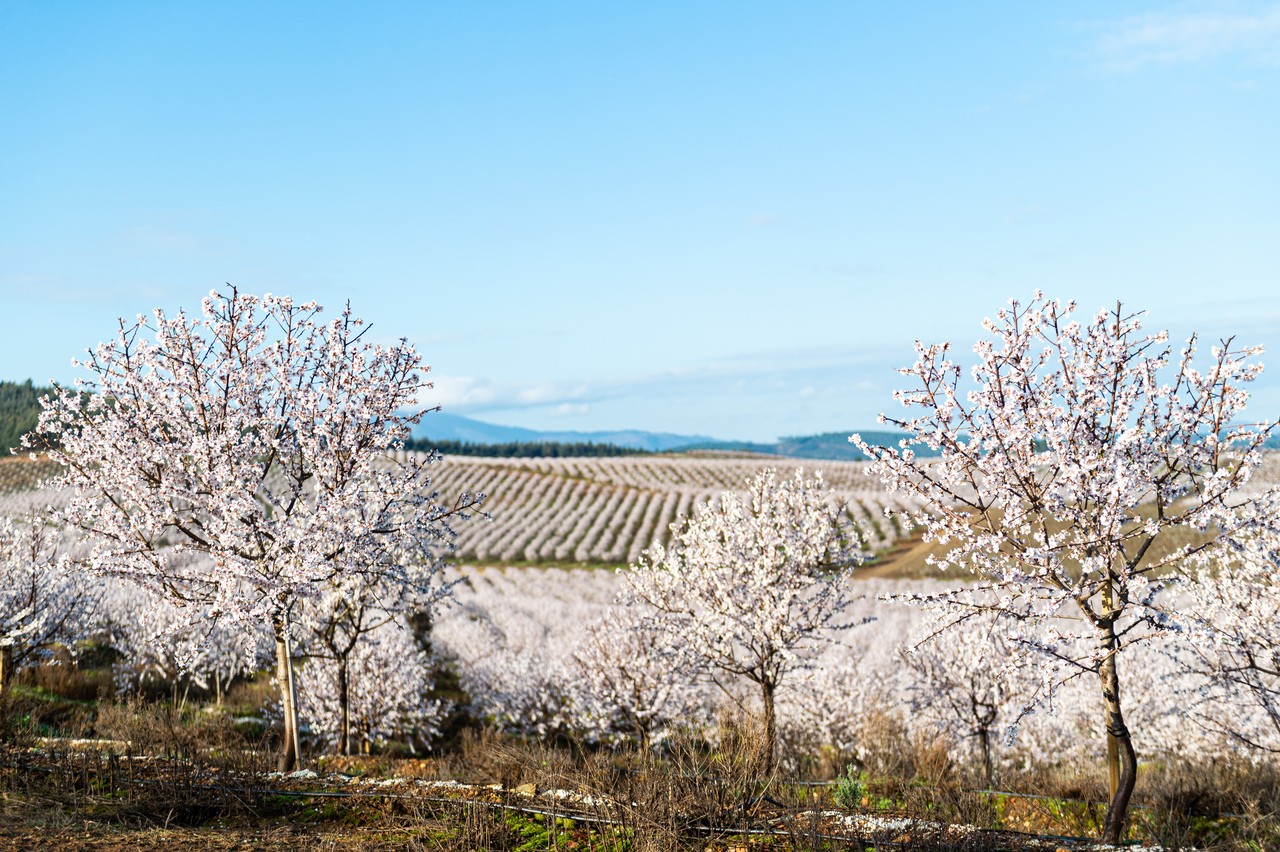This article was originally published in Portuguese on Vidarural.pt
Veracruz is currently testing a Swiss water treatment technology which enables an average 20% reduction of water use. The company, which operates around 1000 ha of almond orchards, started running trials in early 2021 in Herdade do Carvalhal, with the belief that this technology could be very promising for optimizing both water use and fertilizer use.
AQUA4D® technology, of Swiss origin, is based on a deceptively simple process of ionization of water molecules, involving resonance fields sent from Control Unit to Treatment Units. This improves water moisture in soils, staying longer around the root area of the plant. “This technology results in less water being necessary because water stays longer in the area around the plant, which allows for precise and optimized irrigation,” says David Carvalho, co-founder of Veracruz. “In reality, the plant is taking in the same amount of water but there is less water going to waste. We estimate the savings will be between 20-25% – hence saving a quarter of our water use thanks to this technology.”
The advantages of the technology go beyond even these impressive water savings. When applied to fertigation, by bringing water closer to the root area for longer this simultaneously enhances the action of fertilizers, nourishing with more efficiency and economizing on the use of fertilizers. “We have succeeded in improving nutrient absorption,” explains Gustavo Ramos, Director-General of Veracruz, highlighting another aspect:
“This technology is also interesting for saline soils because it promotes a desalinating effect in the soils at a faster speed than lixiviation technologies, for example. This technology efficiently breaks down salts such as sodium, something which is especially interesting for those suffering from salt-saturated soils such as ours.”
Chemical-free
There is another aspect when considering the adoption of this technology. Its treatment breaks down the micro-particulates which often block irrigation drippers. “We formerly had to use an acid to clean these irrigation lines, but now we can avoid using such chemicals and hence achieve a more sustainable irrigation in many aspects,” concludes David Carvalho.
Side-by-side comparisons
The trials of AQUA4D® technology under way in Herdade do Carvalhal is being monitored by sensors. These are comparing the AQUA4D® plot with another location in the same orchard which is otherwise identical in every aspect. This allows a direct comparison of plant behavior and a precise measurement of the water and resources saved.
For Veracruz, the trial of new technologies is an intricate part of the company’s identity. “We have a pipeline of new technologies we’re looking at before deciding to test, invest, and utilize,” reports David Carvalho. “In this case, we identified this Swiss solution with the aim of optimizing our water use. We always want to go the extra mile – we already have efficient systems using Israeli technology, so a further 20-25% water efficiency would be a further considerable benefit. If these tests go well, we plan on extending this technology to all our projects.”
Installation in the Central Valley, California
Veracruz almond fields in Portugal
Portugal
Water-Smart Agriculture
Precision Irrigation
“This technology is also interesting for saline soils because it promotes a desalinating effect in the soils at a faster speed than lixiviation technologies, for example. This technology efficiently breaks down salts such as sodium, something which is especially interesting for those suffering from salt-saturated soils such as ours.”
– Gustavo Ramos, Director-General, Veracruz
A large-scale almond grower in California explains the impact of the AQUA4D system on his cultivation





